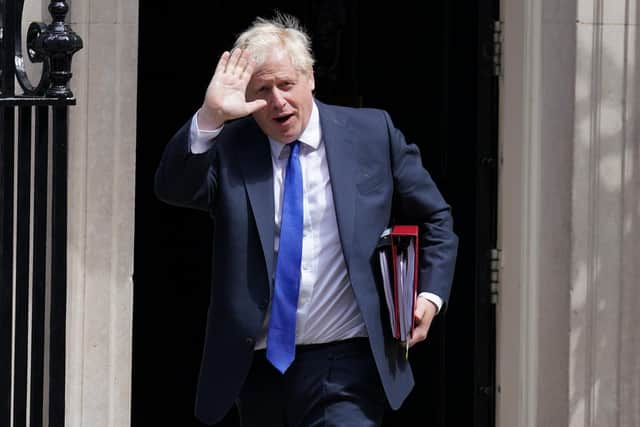Analysis: The big questions that no party have the answers to
This lack of guts, ambition and confidence can be seen everywhere in the politics of post-Brexit Britain and is sadly seen in both Labour and the Conservatives.
These issues cover almost all aspects of policy in the UK, and many are ticking time-bombs and financial blackholes that politicians ignore like a gambler ignores the debt accumulated from their addiction.
Advertisement
Hide AdAdvertisement
Hide AdAmong these generational problems is social care, an under-funded, under-staffed, and terminal problem that will only get worse as the population ages.


Billions of pounds of student debt is constantly gaining interest and is being written off despite people each owing tens of thousands.
The question of tax reform sees politicians note the unfairness of the current tax system that falls too hard on the wrong people, but offer no solutions to fix it.
Pensions remain a sacred cow, where the triple-lock increases the support given to those who have retired while those still in work cannot afford to live the life their parents enjoyed.
Advertisement
Hide AdAdvertisement
Hide AdFor housing, vast sums of money have become locked in a system which is expensive for young people to buy and for old people to sell.
These problems all share one common consequence which terrify politicians: solving them creates winners and losers.
Paying for social care will require one group to lose in order for old people to “win” and get the care they need, while dealing with student debt will require someone to pick up the tab.
Tax reform cannot see tax cuts for all, while solving the housing crisis will likely see many people’s homes fall in value if more homes are built.
Advertisement
Hide AdAdvertisement
Hide AdMeanwhile, readjusting support for those who are working, rather than those who have earned their pensions from working in the past, will create anger amongst the section of the population that is most likely to vote.
All of this creates a political risk of one party angering one section of the population, while the other becomes their champion, promising to make them a winner again.
Boris Johnson was the most recent politician who looked to reform social care, pledging to fix a massive problem in what would generously be called bravery and ungenerously called arrogance.
But his attempt also failed after war, pestilence and deep unpopularity meant it wouldn’t happen.
Advertisement
Hide AdAdvertisement
Hide AdWhile politicians may be too cynical to take on the big issues, there is a decent chance that the public is forgiving enough to stomach change.
We only have to look to the pandemic where lives were turned on their head to protect one another to see that Britain is able to accept negative change because they were convinced it was for the best.
Ahead of the next election no party feels it is politically feasible to get away with proposing and enacting the level of change that this country needs.
That change would create a generation of millions of winners and losers which every party will want to exploit to get a chance of power.
Advertisement
Hide AdAdvertisement
Hide AdBut, the aftermath of the next election may also provide an opportunity.
A Labour government with a large enough majority may feel it has the mandate and the political cover to take on these thorny issues.
Similarly, the Conservatives may find the freedom of opposition allows them to propose bolder ideas than a government fighting to hold on to power is willing to do.
These issues are not going away, and all eyes will be on both parties to see if they are braver than they have been for years in pledging to at least try to sort them.